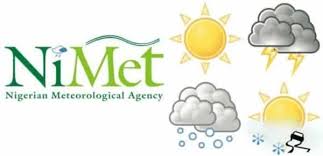
Cholera: Avoid taking tiger nut drinks sold by hawkers, experts tell Nigerians
Medical and nutrition specialists have advised Nigerians to cease consuming locally made drinks from unidentified sources and street vendors in light of the recent cholera outbreak, which is rapidly spreading throughout the nation and has resulted in at least 53 deaths.
According to the experts, this will help stop the diarrhoeal infection from spreading further because it is primarily contracted through contaminated food or water.
The experts stressed the importance of exercising caution, pointing out that some local beverage manufacturers, including those of zobo, kunu, and tiger nut, package their products in used plastic bottles that are occasionally collected from unclean locations.
They pointed out that there are doubts about the water source and the conditions in which these beverages were made.
An acute diarrheal infection called cholera is brought on by ingestion of food or water contaminated with the bacterium Vibrio cholera.
Symptoms of cholera include acute, painless watery diarrhea of sudden onset, with or without vomiting. It may be associated with nausea, profuse vomiting, and fever.
There is a serious cholera outbreak in Nigeria; over 1,528 suspected cases have been reported in 31 states by the NCDC.
Lagos, Bayelsa, Zamfara, Abia, Cross River, Bauchi, Delta, Katsina, Imo, and Nasarawa states have been particularly hard hit by the outbreak.
A cholera outbreak that has devastated Lagos over the past few days has resulted in the death of at least 29 people out of approximately 579 suspected cases.
According to Dr. Omobolanle Johnson, a public health physician, there are numerous health risks connected to the bottles themselves, which could expose users to cholera and other bacterial infections.
According to Johnson, the Lagos State Chapter Secretary of the Medical Women's Association of Nigeria, the bottles are frequently picked in odd locations and are not adequately cleaned.
"The person making the drink is just about the money," the public health expert continued. There is no food safety training behind him or her.
Once more, what kind of water do they use? You can contract cholera and many other diseases from water. Many of them lack the necessary training to make these cocktails.
It is important to look into the risks involved in using the substance from the point of access to the point of consumption. Quality control procedures ought to be implemented. In Nigeria, every food ought to be regulated.
Olusola Malomo, a registered dietician and nutritionist, also spoke, stating that unclean pet bottles may have bacteria that could infect and thrive in those prepackaged drinks.
At the Ajeromi General Hospital in Lagos, Malomo, an assistant chief dietician, stated, "No quality check and no safety protocols are observed. The producers have no form of training. There are a lot of safety issues around those drinks.”
The Lagos State Government said various possible sources, including the tiger nut drink, were being investigated to determine the cause of the outbreak.
In an interview on Saturday, Dr. Kemi Ogunyemi, the Special Advisor on Health to the Lagos State Governor, connected the state's cholera outbreak to a tiger nut drink that many of the patients who showed symptoms in the Eti-Osa Local Government Area had allegedly drank.
Ogunyemi stated that the majority of them acknowledged consuming the beverage prior to presenting bouts of diarrhoea and other cholera symptoms at the hospitals, despite the state government having not yet released any findings from its investigations into the outbreak's causes.
"So when we noticed an increase in cases in Eti-Osa Local Government Area of Lagos specifically, we went there to investigate," stated the special adviser. Following our study, we discovered that the common denominator, which was one of the deadly factors, was a tiger nut drink. People who came to the hospitals all identified that they had drunk tiger nut drinks. We couldn’t just take their word for it, so we had to take that drink and test it to see what was in it. We immediately sent people out to look for those selling it so we could take a sample.
The National Agency for Food and Drug Administration and Control, the regulatory organisation that guarantees the safety of consumables, was not even notified that the empty bottles with names on them had been located. We began our investigation after finding a name and phone number on the bottle. Like with COVID-19, we conducted contact tracing.
After conducting our investigations, we discovered that the beverage makers had not followed the proper procedures to guarantee that the product they were making was safe for consumption by the general public because the beverages were not registered.
The majority of pet bottles used in Nigeria were not intended to be reused, according to food expert Aina Olugbenga, who cautioned that doing so puts the consumer's health at risk.
"I see a lot of them being used by local women and hawkers to make zobo, kunu, and tiger nut drinks," Olugbenga stated. And there are several health consequences.
"The cleanliness of these bottles cannot be guaranteed by us. One is that you can't guarantee the cleaning procedure and you don't know who or what purpose it was used for the last time.
"The majority of these polymers are not recyclable. Reusing them is not recommended; recycling is the best use for them. The majority of the pet bottles that you are seeing in Nigeria are not meant to be reused. But we are reusing them. It is not safe, it is not hygienic.”





